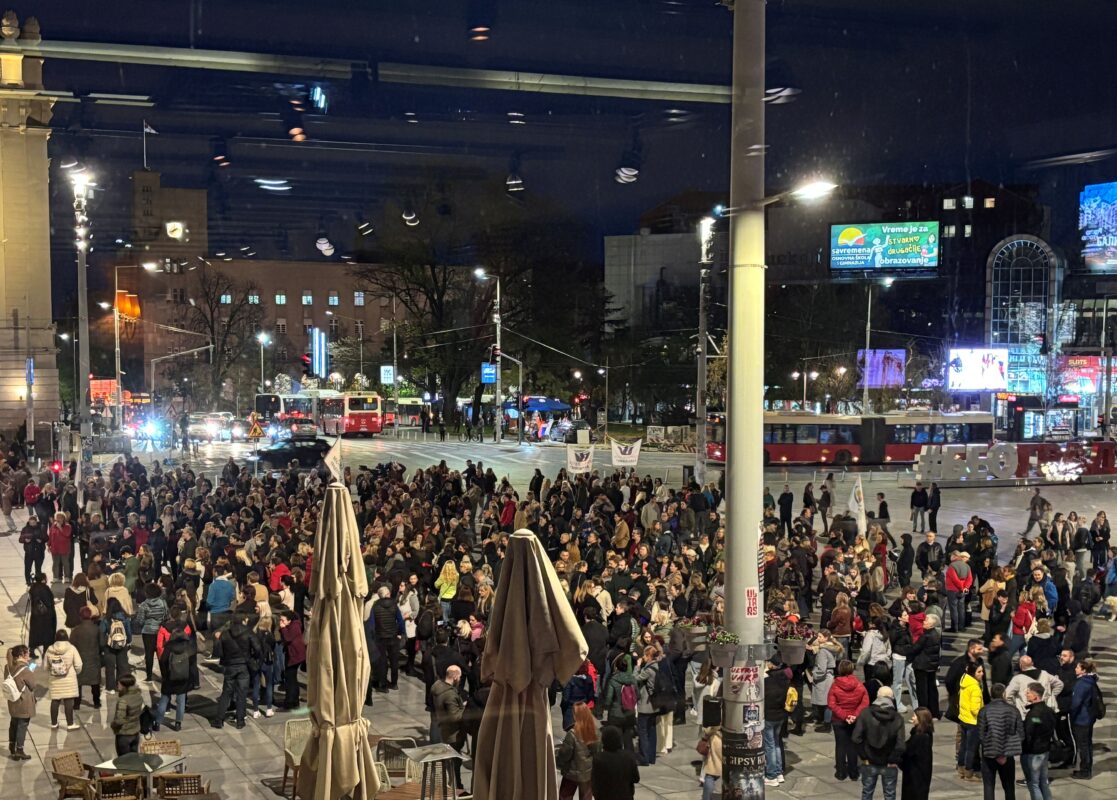"I call it courage"
Whether folk music or classical music - the main thing is that a woman takes center stage: the Femmusicale festival took place for the second time in Bern from 20 to 29 November.

The promotion of women in the classical music industry has become something of a tradition: competitions, sponsorship awards, umbrella organizations, festivals, etc. However, there is still a huge imbalance between female and male composers in the concert programs of orchestras and ensembles. Since last year, there has been one more organizer to address this issue. The concerts at the Femmusicale festival in Bern will each focus on a woman. The initiative came from pianist Patrizio Mazzola, who teaches at the universities in Bern and Lucerne. He was particularly disturbed by the fact that so few men were interested in and committed to women composers. Now he wants to set a good example. The organizer has not decided on a genre. Whether folk music, romanticism, contemporary experimental or even pop sounds, the music of 22 female composers could be heard. Admittedly, some of them were not just known since yesterday: Fanny Mendelssohn, Clara Schumann, Lily Boulanger, Sofia Gubaidulina. They are among the few women who have already conquered their place in the classical repertoire. They are the tip of an undiscovered iceberg, as Christine Fischer remarked during a panel discussion in which female festival artists discussed the role of women in Western music. The co-president of the Forum Music Diversity was referring to the unexplored centuries in which many more women may have been active as composers than we know today. But do women really still need such support platforms in contemporary music-making? Aren't young female composers already recognized and just as successful as their male colleagues thanks to equal opportunities in education?
Detours
Gabrielle Brunner's story confirms that many women nevertheless tend to take a roundabout route to composing. Although she was born in 1963, grew up in a family of musicians and is an excellent violinist herself, she only started composing in 2007. At the festival, she performed two powerful and dramatically stirring compositions for solo violin, which she played with sharp accents and great intensity: Lema I and Lema II. Brunner is also committed to discovering unknown female composers, researching the FMD's music media collection, which is stored in the music library of the Bern University of the Arts HKB, and producing a CD.
Ruth Dürrenmatt's performance at the festival opening was a rarity discovery from today. She presented her idiosyncratic Gesamtkunstwerk with impressive self-confidence: improvising on the piano, she began by singing a fervent, soulful "Moo" song. After this tongue-in-cheek introduction, things got serious: her self-written lyrics are socially critical, denouncing environmental pollution and unscrupulous capitalism, dealing with taboo subjects such as old age and death. Particularly impressive are her childhood stories, which bear witness to an extremely vivid imagination. When she tells of a fire demon that lives in trees or of her soul flying away to dreamland, she seems to be completely at one with herself. Accompanied by cello and piano (Brigitt Sahi and Patrizio Mazzola), the trained opera singer sings with a roaring voice and fierce impetus. Her drawings and paintings adorn the program booklet. Ruth Dürrenmatt, the youngest daughter of the famous poet Friedrich Dürrenmatt, is an artistic force of nature in the truest sense of the word. Her entire oeuvre is characterized by an unforced and natural naivety. She even attaches particular importance to this, as she revealed to SRF2 in an interview: "Woe betide the artist who is too mature." And even if a large part of the audience came mainly out of curiosity to hear what Dürrenmatt's daughter is up to, the stage action is a greatness in itself. There is always a touch of defiance in it. Although she improvised on the piano as a child, the 64-year-old was never encouraged to develop as a composer. It was a long road for her to break away from the traditional gender roles of her upbringing and find her own personal artistic expression: "I call it courage," she comments on this sometimes combative path.
Organizer Patrizio Mazzola has also shown courage with the launch of his festival. However, if his message is to spread further, a lot more is needed, from more professional communication to a sharper program in terms of content. Then there should also be more of an audience.








